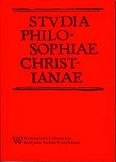Józef Tischner w sporze o społeczną naturę człowieka. 'Homo sovieticus' a 'homo solidaritus'
Józef Tischner in the dispute over the social nature of man. 'Homo sovieticus' versus 'Homo solidaritus'
Author(s): Paweł NierodkaSubject(s): Philosophy
Published by: Wydawnictwo Naukowe Uniwersytetu Kardynała Stefana Wyszyńskiego w Warszawie
Keywords: homo sovieticus; solidarity; conscience; dialogue; monologue; human relations; morality; freedom; Tischner J.
Summary/Abstract: This paper refers to the views of Aleksandr Zinovyev, Aleksandr Solzhenitsyn and, above all, Józef Tischner’s philosophical concept. They share and criticize the same area of interest, i.e. the phenomenon of homo sovieticus. In the dispute over the social nature of man, J. Tischner ponders on homo sovieticus, but first and foremost on the man that lives by the principle of solidarity, man described as homo solidaritus. Homo sovieticus “is merely a popular historical symbol”, a figure of the past. It is a subject of historical and sociological research, among others, and a modus, i.e. one of the methods of organizing human relations, which failed. The human being is not defined through the use of this name. The human being is defined by eidos, which J. Tischner mentions while analyzing the idea of solidarity. The problem of human relations, social relations, dialogue, monologue, conscience, freedom and moral human condition are the “tools” used for analyzing the subject of this paper.
Journal: Studia Philosophiae Christianae
- Issue Year: 48/2012
- Issue No: 4
- Page Range: 75-95
- Page Count: 21
- Language: Polish

